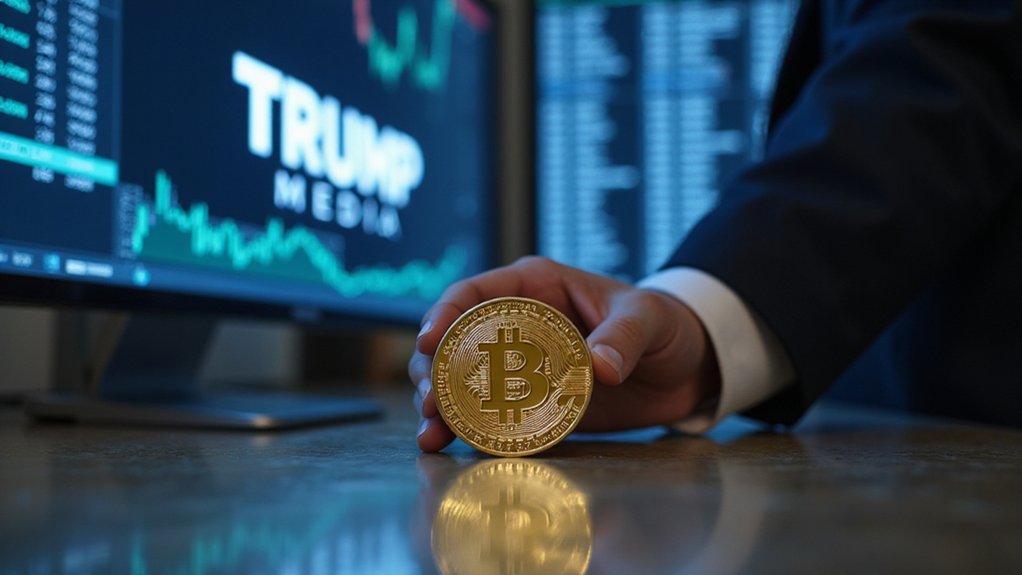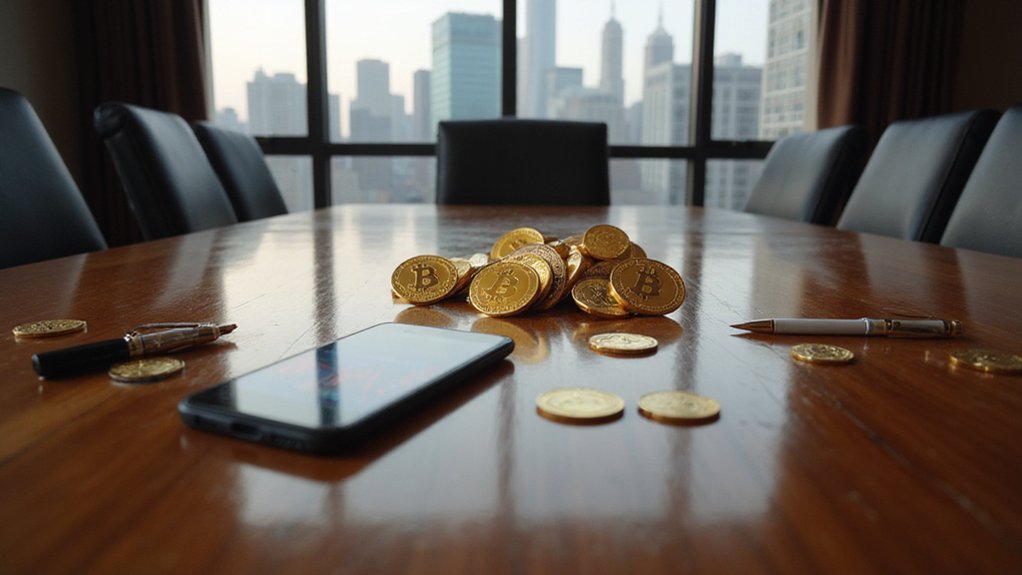The venerable Spanish banking giant BBVA has crossed the digital Rubicon, advising its affluent clientele to allocate between 3% and 7% of their portfolios to cryptocurrencies—a recommendation that would have been tantamount to professional suicide just a few years ago when Bitcoin was still considered the province of libertarian zealots and basement-dwelling speculators.
This calculated pivot represents a seismic shift in institutional thinking, particularly striking given the European Union’s regulatory skepticism toward digital assets.
BBVA’s private banking arm now actively counsels wealthy clients on cryptocurrency investments, with allocation percentages calibrated to individual risk tolerances—a diplomatic way of asking whether clients prefer their volatility served with a side of mild anxiety or full-blown cardiac episodes.
Portfolio allocation meets cardiac risk assessment in BBVA’s delightfully diplomatic approach to cryptocurrency anxiety management.
The timing appears strategically astute, coinciding with Bitcoin’s recent surge to new highs and the broader cryptocurrency market’s recovery from 2022’s spectacular implosion.
BBVA began offering Bitcoin advisory services in September, positioning itself ahead of institutional adoption curves while most European banks maintained their studied indifference to digital assets. The bank’s move aligns with broader institutional adoption trends that are driving significant market growth across the cryptocurrency sector.
The bank’s rationale centers on portfolio diversification and potential gains, though one suspects their risk management team maintains a robust supply of antacids.
What makes BBVA’s stance particularly remarkable is its rarity within the European banking landscape, where only a small percentage of financial institutions engage with cryptocurrency-related activities.
The Spanish bank’s Switzerland division has embraced digital and blockchain solutions, suggesting a coordinated strategy rather than rogue enthusiasm from a single department. Philippe Meyer, Head of Digital and Blockchain Solutions at BBVA Switzerland, announced this strategic advice at the DigiAssets conference, underscoring the bank’s commitment to expanding its cryptocurrency recommendations.
Operating within existing regulatory frameworks despite Brussels’ continued wariness demonstrates BBVA’s confidence in managing compliance complexities while pursuing what they perceive as inevitable market evolution.
The bank’s approach acknowledges crypto’s notorious volatility while positioning digital assets as legitimate portfolio components for sophisticated investors.
This institutional endorsement carries weight beyond BBVA’s client base, potentially influencing peer institutions to reconsider their cryptocurrency strategies.
The bank’s willingness to recommend allocations up to 7% for risk-tolerant clients signals genuine conviction in digital assets’ long-term viability, though whether this proves prescient wisdom or expensive folly remains to be determined by markets that have historically rewarded both hubris and humility with equal unpredictability.









